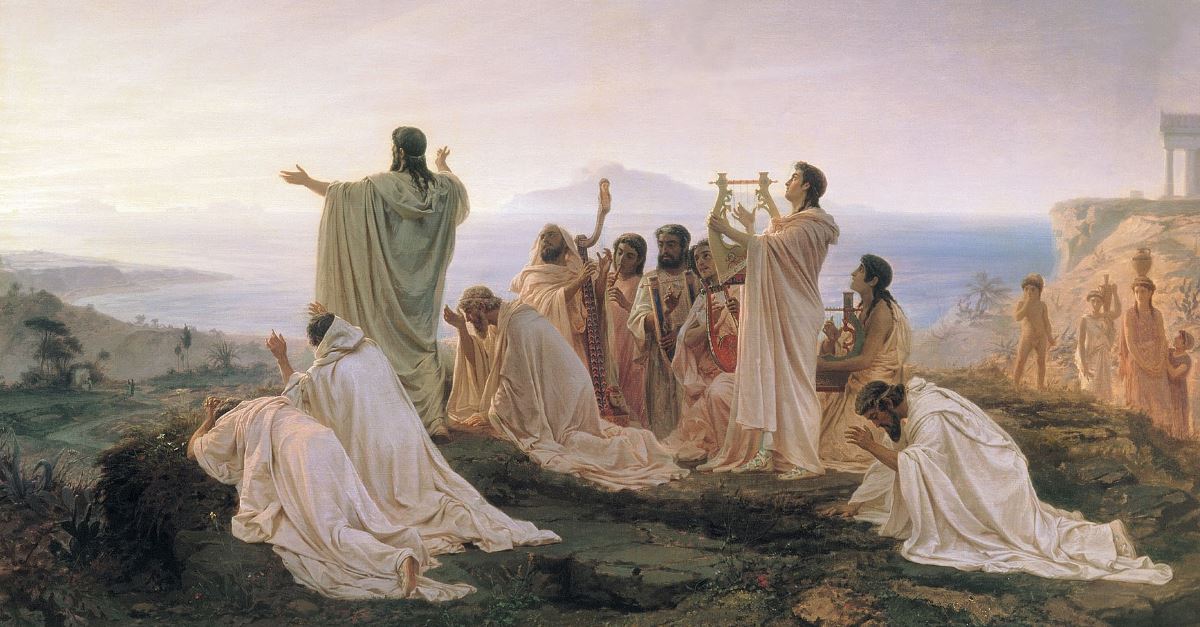
................................................................................................................................................
Postmillenialism
What Is
Postmillenialism?
Timothy J. Demy and Thomas Ice
What does Postmillennialism mean?
Postmillennialism is the view or system of eschatology
(doctrine of the last things) teaching that the current age is the millennium,
which is not necessarily a thousand years.
Postmillennialists believe that the kingdom of Jesus
Christ will gradually be extended though the preaching of the gospel; the
eventual conversion of a majority of people (not necessarily all people); and
the progressive growth of righteousness, prosperity, and development in every
sphere of life as this growing majority of Christians struggle to subdue the
world for Christ.
Only after Christianity has dominated the world for a long
time will Jesus Christ then return.
After the church’s glorious reign of victory (like
amillennialism), there will be a general resurrection, destruction of the
present creation, and entry into the eternal state.
Postmillennialism differs from premillennialism and
amillennialism in that postmillennialists are optimistic that this victory will
be realized without the need for a cataclysmic return of Christ to impose
righteousness.
Instead, they believe that it will result from the
faithful application of the present process.
Origin of Postmillennialism
Postmillennialism did not develop into a distinct system
of eschatology until after the Reformation.
Prior to that time, various elements developed that later
were included in the theological mix of modern postmillennialism.
Postmillennialism was the last major millennial position
to develop.
Dr. John Walvoord, probably the greatest scholar and
teacher of prophecy in the twentieth century, noted that there are two
principle types of postmillennialism:
Stemming from [Daniel] Whitby [1638–1726], these groups
provided two types of postmillennialism which have persisted to the twentieth
century:
(1) a Biblical type . . . finding its
material in the Scriptures and its power in God;
(2) the evolutionary or liberal
theological type which bases its proof on confidence in man to achieve progress
through natural means.
These two widely separated systems of belief have one thing
in common, the idea of ultimate progress and solution of present difficulties.
Postmillennialism in the United
States
Postmillennialism was the dominant view of the millennium
in the United States during much of the nineteenth century, but virtually became
extinct up until the 1960s.
The last several decades have witnessed an upsurge in
postmillennialism in some conservative arenas through the Christian
Reconstruction movement.
(Various lists have been made of the key beliefs of the
Reconstructionists, but those beliefs most central to Reconstructionism are:
[1] A belief in the sovereignty of
God;
[2] Postmillennialism;
[3] The application of the judicial
laws of Moses in modern society;
[4] Presuppositional apologetics;
[5] The “covenant” concept as the key
to understanding the Bible and history and the basis of
Christian living.
Christian Reconstructionists propose to institute a
theocratic — that is, Godruled — government in America, and they are gaining support
in some elements of the evangelical community.)
Crosswalk.com, an online Christian living magazine, is brought to
you by a group of writers, editors, and content producers seeking to provide
applicable, educational, and entertaining content to followers of Jesus Christ
regardless of where they are in their respective spiritual journeys. We believe
that the Christian faith isn’t just for Sunday mornings in church; our faith
informs every issue we face every day of the week. We want to provide content
to people who are seeking to determine what living Christianity day-to-day
means in their own lives.
Our goals at Crosswalk.com are
to encourage and challenge you, to help you worship and help you think, to give
you practical application of Scripture as well as positive shared testimonies
and honest struggles. We strive to provide timely information on everything
from Marriage, Parenting and Family issues, to Bible Study, Prayer, Spiritual
Growth and Devotionals, to current events and a Christian look at popular culture,
always within an overarching framework of evangelical Christian orthodoxy.
https://www.crosswalk.com/faith/bible-study/what-is-postmillenialism.html

You might also like:
What is Amillennialism?

Ed Jarrett
CLICK HERE . . . to view . .
.
.

No comments:
Post a Comment